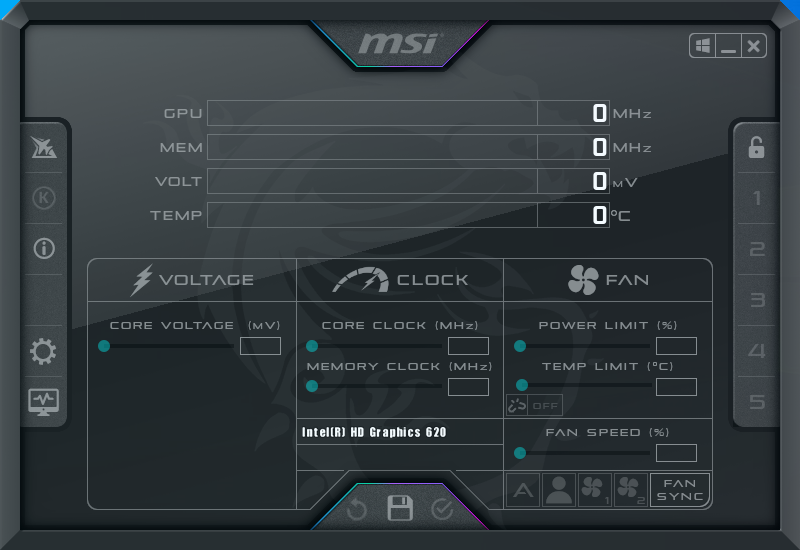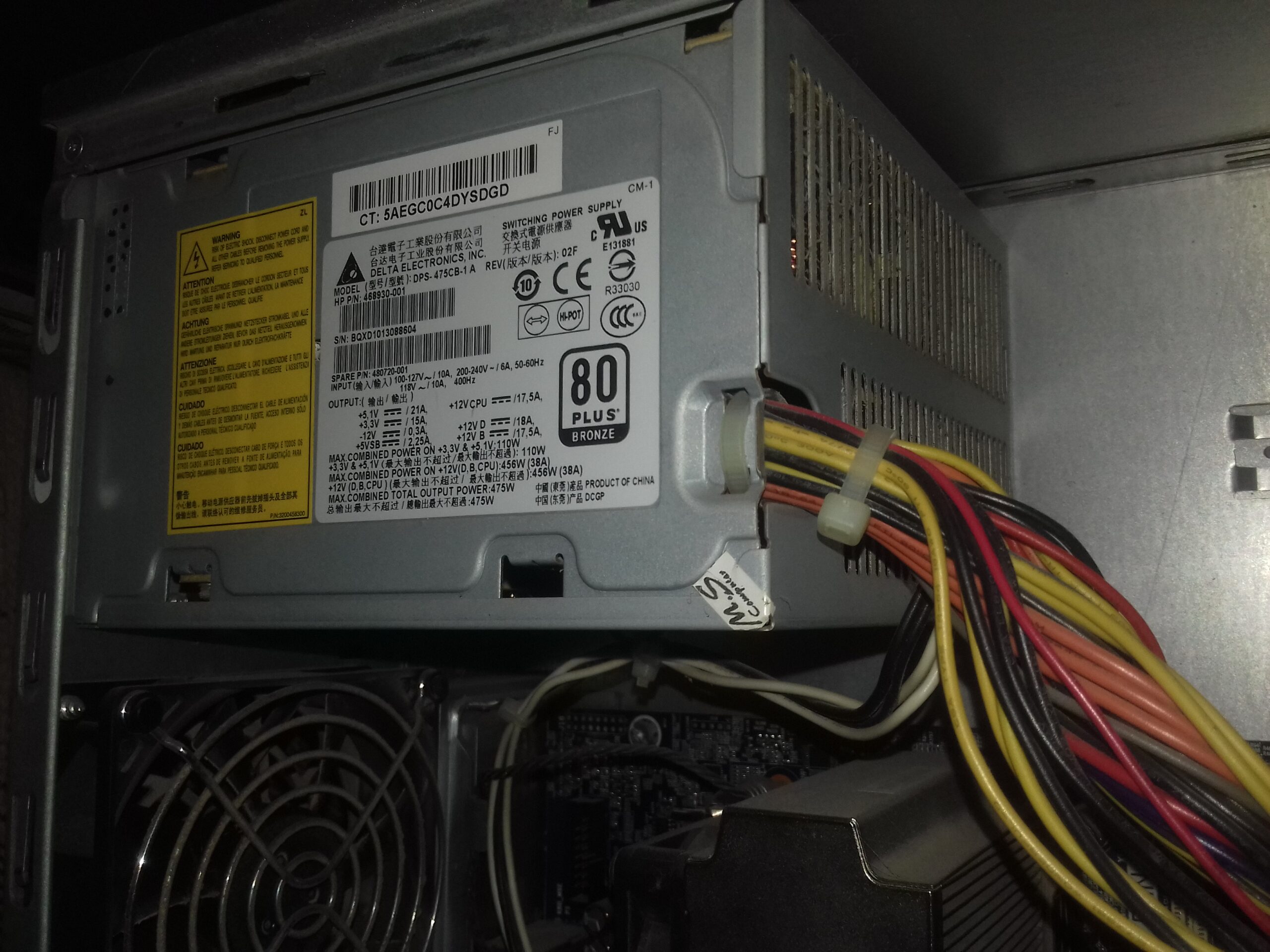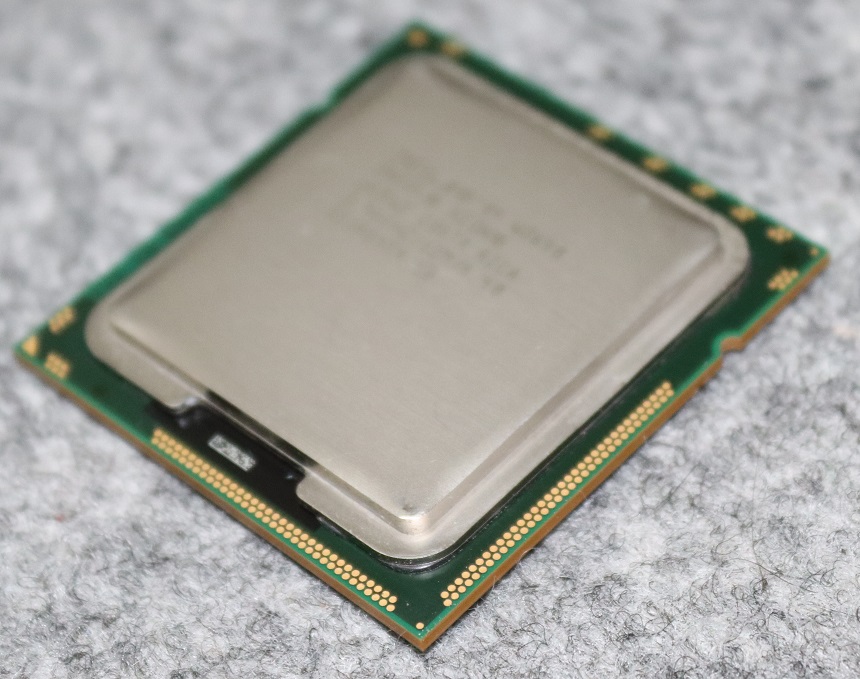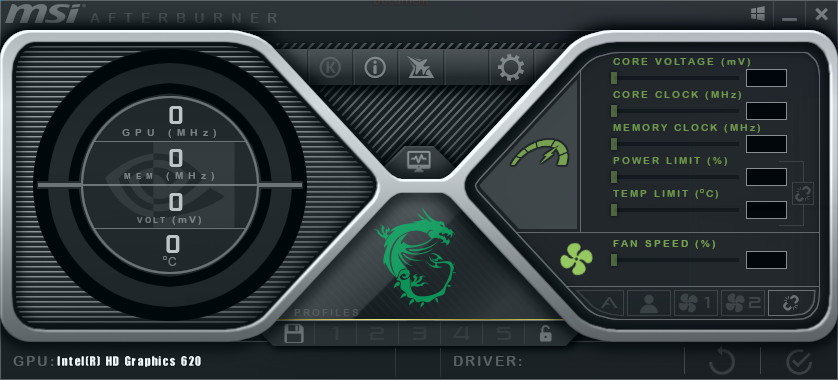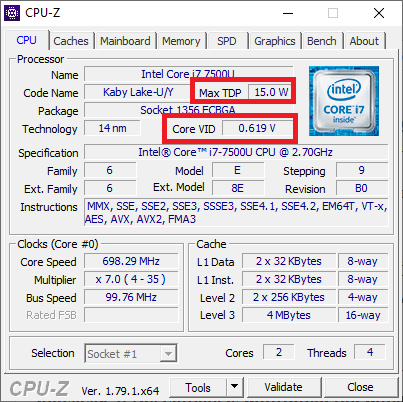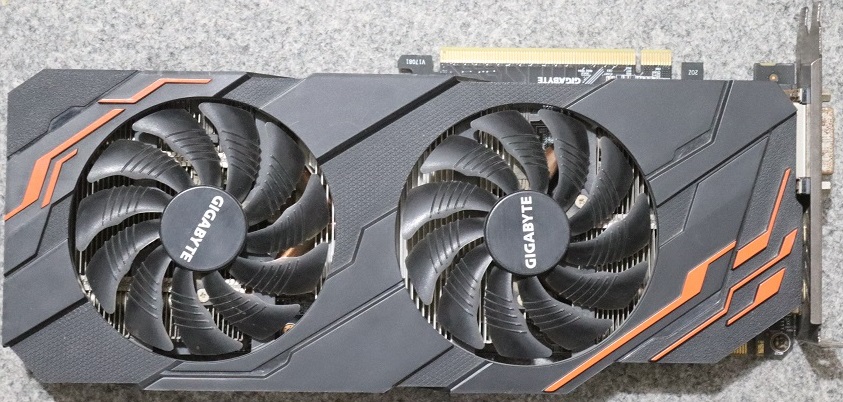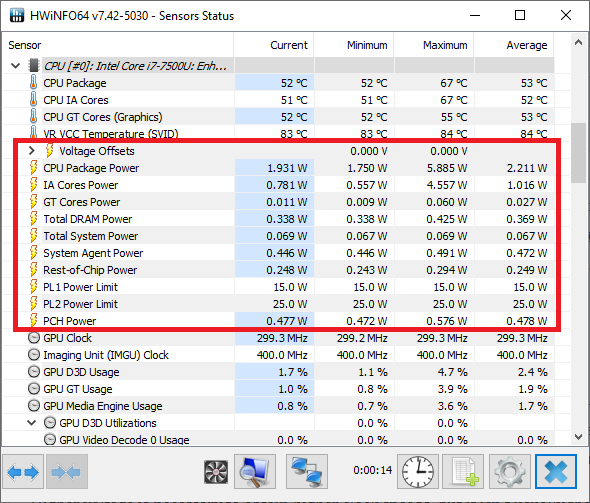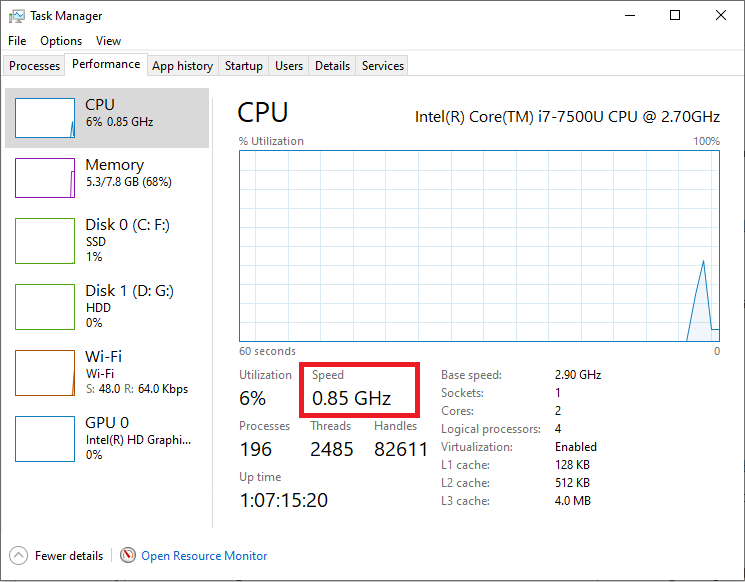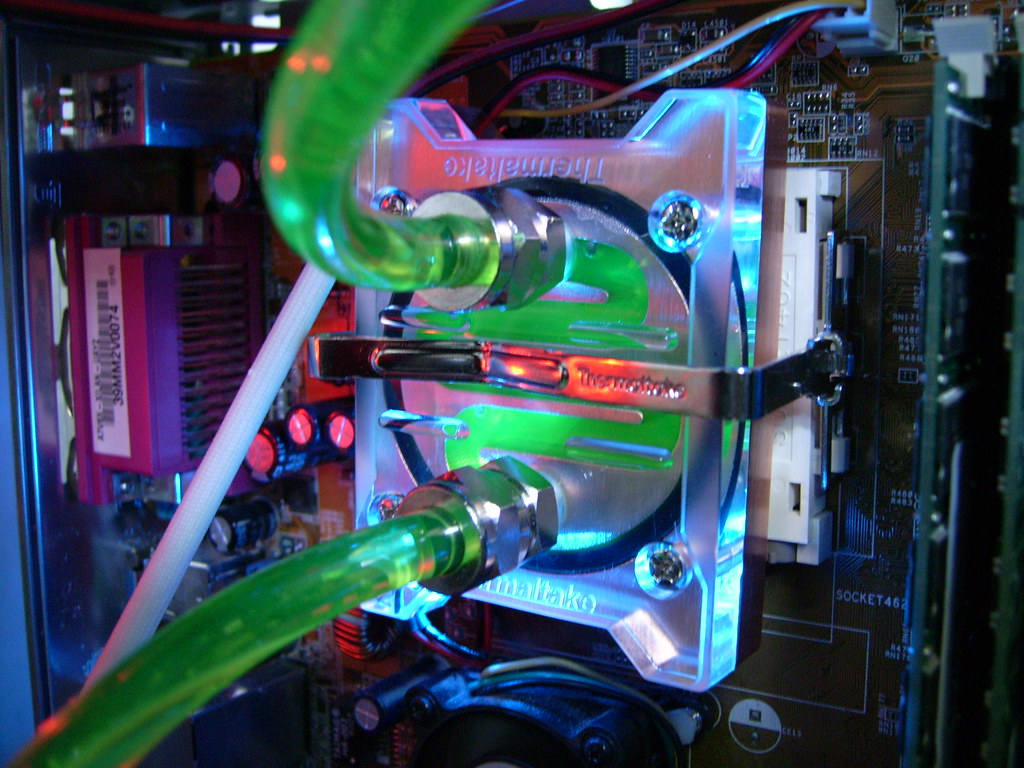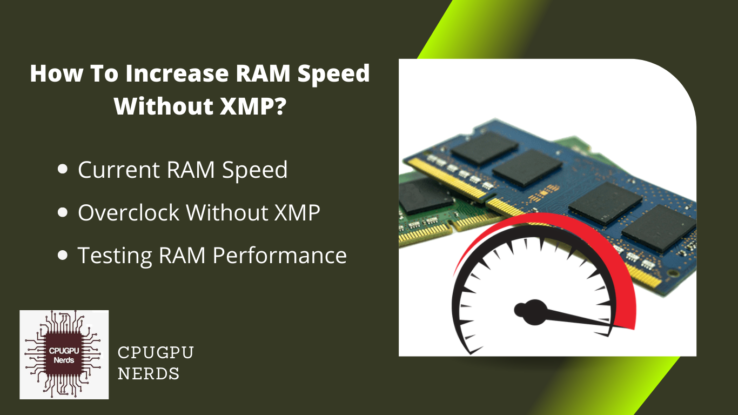CPU is the brain of a computer that requires a specific amount of voltage to work perfectly.
The increasing advancements in computer technology are leading to greater demands on the hardware components that drive it. One such component, the central processing unit (CPU), is the primary operational unit of any computer system.
Nevertheless, some users may experience unusual levels of CPU voltage that spur worries about their CPU’s longevity and overall health. We want to delve deeper into these concerns, pinpoint the full extent of the risks, and reveal practical solutions so that you can optimize your computer’s workflow.
Why Is My CPU Voltage So High?
Your CPU voltage is mainly high because of excessive overclocking, poor thermal management and case ventilation, a faulty power supply unit, and misconfigured BIOS settings. High CPU voltage is normal, ensuring a stable voltage supply according to CPU requirements.
Overclocking
Users who seek enhanced computer performance can achieve it through overclocking, although this pursuit doesn’t come without peril. The activity can damage the CPU, leading to increased temperatures, higher power usage, interference with integrated circuits, and nullifying the CPU’s warranty.
Therefore, it’s paramount that users display prudence and enact proper cooling measures while comprehending the jeopardy that overclocking can invite before proceeding with the operation.
Poor Thermal Management
Proper thermal management becomes a pressing issue with the growing need for high electronic device capacity. As devices become more complicated and compact, the heat they generate becomes harder to disperse, creating difficulties.
This issue is particularly problematic for portable devices, such as laptops, that require good cooling solutions despite their compact design. The use of ineffective cooling methods can also lead to thermal management issues.
For instance, archaic models of computers depend on air-cooled fans and heat sinks that tend to be loud and less efficient. Although innovative solutions such as heat pipes or liquid cooling are much more effective, they are expensive and not feasible in all cases.
Faulty Power Supply (PSU)
A faulty energy delivery unit (PSU) may be the principal reason for overvoltage in the CPU and cause CPU harm. The power supply is responsible for imparting the necessary voltage and current to the CPU and different additives inside the computer.
If the power supply is defective, it could supply excessive voltage to the CPU, which may cause it to malfunction and even permanently damage it. In this chapter, we can discuss the reasons and consequences of a faulty CPU energy supply.
CPU Degradation
Excessive voltage can cause CPU degradation because it may lead to a phenomenon called “electromagnetic migration.” Electromigration occurs when the current floats through a conductor, causing the atoms within the conductor to emigrate. Over time, this may cause the conductor to become thinner and weaker, which could lead to circuit failure.
In the case of a CPU, the transistors that make up the circuitry are very small and sensitive. When high voltage is implemented in the CPU, it can cause the transistors to warm up and the electrons to go with the flow quickly. It can increase the likelihood of electromigration happening, which could result in the degradation of the CPU over the years.
Misconfigured BIOS Settings
The primary reason for excessive CPU voltage because of misconfigured BIOS settings is that the voltage regulator module (VRM) may be set to supply an excessive amount of power to the CPU.
The VRM is charged with regulating the voltage that the CPU gets, and if it isn’t always configured efficiently, it can deliver an excessive amount of energy to the CPU. It can cause the CPU to overheat, leading to instability, crashes, or permanent damage. So, you have to default to all the BIOS settings.
How To Fix Too High CPU Voltage?
Reduce Overclocking
You have to reduce the amount of overclocking because this is the main cause of increasing the voltage on the CPU. Increasing CPU frequency increases the voltage surge. So, open the application you used for overclocking and set all the values to default.
It will resolve the issue immediately. You can undervolt and overclock simultaneously, but some old CPUs don’t support this phenomenon. That is why they need to introduce default values.
Add Exhaust of Fans
Adding more fans to your case will reduce the effect of accumulated air in the case. If your PC case has more spaces for fans, just fill them and add more fans. Moreover, you can use a water cooling system for your CPU to increase its cooling effect.
You can try to use custom fans for your CPU. Some aftermarket fans are proven to provide better cooling than custom fans. Custom fans are just for formal CPU usage. But if you plan to overclock your CPU, you must add a better CPU cooling system.
Replace Power Supply
If your power supply is not giving enough power to your CPU, even if it’s not overclocked, then you need to replace it immediately, as it is insufficient to provide sufficient power to your PC. Before buying the power supply, you must consider all the components, including the CPU, GPU, and RAM.
For overclocking, professionals recommend at least 500 watts of power, as your components will need excessive power to operate at higher frequencies. Always calculate the total power of your components and then buy the power supply. Several websites provide power supply calculators, like the Cooler Master PSU Calculator.
Default BIOS
To reduce the over-surge of power, you must default the BIOS settings. Sometimes, we accidentally increase the power of components in the BIOS, and these settings affect our CPU. As a result, you will face low performance.
To default the BIOS settings, restart your computer and press the specific button on the flash screen to open BIOS. It may be the “F2 or Dell.” Once you are in the BIOS, look for the default setting button. Press the button and restart your PC. It will resolve the high power issue in the CPU.
What Is Unsafe CPU Voltage?
If your CPU voltage is above 1.4, it is unsafe, and your CPU is overvolt. When the voltage provided to a CPU exceeds the secure voltage range, it is called a “hazardous CPU voltage.” You have to take immediate action to reduce the voltage; otherwise, it may damage your CPU.
A hazardous CPU voltage can cause various issues, including reduced overall performance, balance troubles, or even permanent harm to the CPU.
There are numerous reasons why a CPU may be subjected to an unsafe voltage. One of the most common motives is overclocking, which includes growing the CPU’s clock pace to acquire higher overall performance.
Overclocking may be executed by increasing the CPU voltage to offer extra power to the CPU; however, if the voltage is multiplied too much, it may result in a hazardous CPU voltage.
Does Increasing Voltage Damage CPU?
Increasing CPU voltage may not damage it, but excessive overvoltage beyond the safe limit may cause permanent damage to your CPU. This damage is caused by overheating that is produced as the result of overvoting. It’s far from necessary to recognize the basic operating principles of the CPU.
The CPU operates by receiving electrical alerts, processing them, and sending them to different components of the laptop system. The voltage provided to the CPU is crucial to its functioning, as it determines the quantity of strength available to the CPU for processing commands.
Increasing voltage with overclocking improves the overall CPU’s performance. However, despite those safeguards in location, increasing the voltage past the advocated degrees can damage the CPU.
Overclocking, which entails increasing the voltage and clock speed of the CPU, is a famous way of boosting overall performance. However, it also increases the chance of damage to the CPU.
Can You Undervolt a CPU?
You can safely undervolt your CPU within limits. Excessive undervolting reduces the performance of the CPU and causes many other issues. The main purpose of undervolting is to lessen the CPU’s overheating. Therefore, whenever you are undervolting the CPU, consider the lower voltage values.
Undervolting a CPU refers to decreasing the voltage provided to the CPU to decrease the quantity of strength it consumes and the quantity of warmth it produces. It is a useful technique for decreasing the temperature of a CPU, which can improve its performance and lengthen its lifespan.
However, it is essential to notice that undervolting isn’t a universally relevant answer, and there are a few conditions where it may no longer be encouraged.
Undervolting may be useful for CPUs going for warm walks or ingesting more energy than necessary. Lowering the voltage supplied to the CPU can decrease the electricity it consumes and lower the heat it produces, which could help keep temperatures under control.
Does Higher Voltage Mean Faster CPU?
CPU velocity is determined through clock velocity and IPC (Instructions Per Cycle). Clock pace is the variety of cycles consistent with 2nd that the CPU can perform, at the same time as IPC is the number of instructions that the CPU can execute in every cycle.
Higher voltage is necessary to obtain higher clock speeds, but it isn’t usually the case that higher voltage ends in better clock speeds. Several other elements could restrict the clock pace of a CPU, consisting of heat dissipation and production system obstacles.
In reality, it is feasible for a CPU with a lower voltage to carry out better than a CPU with a higher voltage. A CPU’s performance depends on voltage, clock speed, and IPC stability.
A CPU designed to operate at a lower voltage may have a better IPC and lower heat dissipation, allowing it to perform higher than a CPU with a higher voltage but decreased IPC.
Do Excessive CPU Voltage Damages Motherboard?
The motherboard’s voltage regulators are designed to modify the voltage provided to the CPU. If the voltage furnished to the CPU is too excessive, it could cause the voltage regulators to overheat and lose stability, leading to everlasting damage to the motherboard.
Additionally, excessive voltage can cause different additives at the motherboard, consisting of capacitors, to fail in advance. When overclocking a CPU, it’s vital to carefully reveal the voltage furnished to the CPU. Overclocking increases a CPU’s clock velocity beyond its stock settings to reap higher performance.
However, as the clock velocity increases, so does the voltage required to preserve balance. Increasing too much voltage can motivate the CPU to overheat and potentially harm the motherboard.
It is essential to know that not all motherboards are created the same. Some motherboards are designed to address better voltage levels than others. However, its miles are usually endorsed to live inside the producer’s recommended voltage variety to avoid any capacity damage to the motherboard.
Conclusion
The CPU is the primary operational unit of any laptop gadget, and the growing advancements in laptop technology are mainly due to greater needs placed on its hardware additives. While high CPU voltage is regular to a point, excessive overvoltage past the secure restriction can cause permanent harm to your CPU.
There are several reasons why CPU voltage can be excessive: overclocking, terrible thermal control and case ventilation, a defective energy delivery unit, misconfigured BIOS settings, and CPU degradation due to electromagnetic migration.
Users who search for better computer performance can obtain it through overclocking; however, it’s vital to show prudence and enact proper cooling measures while comprehending the risks related to overclocking.
The right thermal management becomes an urgent issue with the growing desire for elevated electronic tool capability. The use of useless cooling techniques can also result in thermal management issues.
A faulty power supply unit (PSU) may be the important reason for overvoltage within the CPU and cause CPU harm. In the case of a CPU, the transistors that make up the circuitry are very small and touchy. These transistors can burn due to overvoltage supply.

Hey, I’m Hammad. I write for this website to help you with the IT advice about PC, RAM, CPU, Motherboard, PSU, and other PC components.
I will provide detailed guides with images, and explain step by step so you can understand the process. Check all my articles here.


